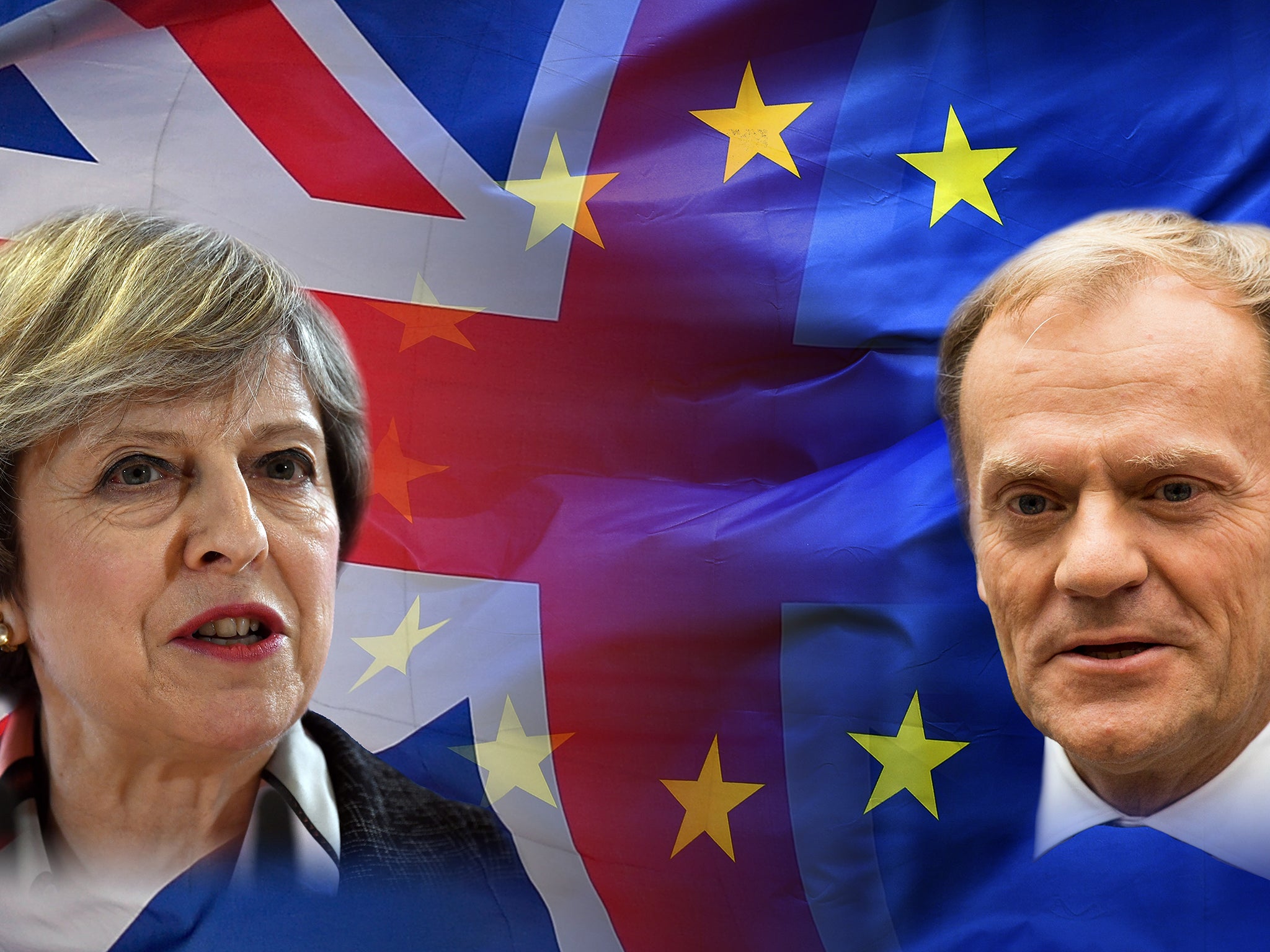Nationalism is driving us towards a hard Brexit that puts Britain at risk
The process we are embarking on is about far more than simply economics or trade. Great care must be taken with our constitutional arrangements, and with the precious normality in Ireland painstakingly built up in the years since the Good Friday Agreement


Your support helps us to tell the story
From reproductive rights to climate change to Big Tech, The Independent is on the ground when the story is developing. Whether it's investigating the financials of Elon Musk's pro-Trump PAC or producing our latest documentary, 'The A Word', which shines a light on the American women fighting for reproductive rights, we know how important it is to parse out the facts from the messaging.
At such a critical moment in US history, we need reporters on the ground. Your donation allows us to keep sending journalists to speak to both sides of the story.
The Independent is trusted by Americans across the entire political spectrum. And unlike many other quality news outlets, we choose not to lock Americans out of our reporting and analysis with paywalls. We believe quality journalism should be available to everyone, paid for by those who can afford it.
Your support makes all the difference.Today the Prime Minister formally invoked Article 50, the European Union’s divorce clause. It marks the beginning of the end of the phony period between the referendum result and the reality of leaving. The clock starts ticking on a two-year period, possibly longer, that will have a huge impact on the economic, geopolitical and constitutional relationships of the United Kingdom.
Since the referendum, attitudes in Government towards leaving have hardened. Full access to the Single Market has been abandoned. Membership of the Customs Union rejected. The European Court of Justice declared radioactive. And, among many Brexiteers, even the prospect of a future free trade agreement with the EU declared unnecessary.
This momentum behind an ever-harder Brexit is driven by right-wing nationalism. It places sovereignty and the limitation of immigration above all other goals – above economic prosperity, above geopolitical solidarity, and even above the unity of the UK itself.
This nationalism, cheered on by a number of newspapers, is now driving the Conservative Party and the Government to the point where many of its advocates now don’t care about the economic or constitutional consequences of leaving the EU with no deal about the future in place. Yet care we must, because leaving without a deal would mean tariffs for business, such as the automotive and agriculture sectors, and far greater limitations on our crucial services industries to trade freely with the EU.
The alarm over this prospect was reflected this week in the warning from the manufacturers’ organisation, the EEF, which said that failure to secure a deal with the EU would be “simply unacceptable”.
It is the responsibility of MPs from across the political parties to continue to speak up, calmly and firmly, for economic prosperity; to put our country’s interests before nationalist ideology and to seek real answers to discontents rather than looking for scapegoats for them.
We should reject the denial of the UK’s deep historical and cultural ties with Europe. And we should speak up for collective security and cooperation in tacking common problems, however much hostility there now is to that approach from either Russia or the new administration in the United States.
The Article 50 letter is likely to be answered with an EU response concentrating on three key areas: the rights of EU and UK citizens living in other countries whose residency status has been called into question by the Brexit decision; the divorce bill for leaving; and the border issues between Northern Ireland and the Republic of Ireland. Discussions I held with German politicians last week confirmed that the EU will value its own unity very highly in these talks, and Brexiteer hopes that German industrial lobbying will outweigh European solidarity look to be dashed.
But the outcome of the process we are embarking on is about far more than simply economics or trade. Great care must be taken with our constitutional arrangements, and with the precious normality in Ireland painstakingly built up in the years since the signing of the Good Friday Agreement.
Yesterday, MPs from Labour, the Conservatives and the Liberal Democrats launched Open Britain’s “Brexit Contract” report. This sets out the 10 promises in total made by the current Government on Brexit, so that we can hold them to account as negotiations proceed.
The tests the Government have set themselves are clear. A trade and customs agreement must be reached with the EU that delivers the “exact same benefits” – to use David Davis’s phrase – as our current membership of the Single Market and the Customs Union, while ending free movement and payments to the EU. New trade agreements with major economies such as the United States and Japan should be ready to sign the very day we leave the EU. Our cooperation with Europe on science, and on fighting the scourges of climate change and cross-border terrorism, must be preserved and enhanced. The EU rules that protect workers’ rights must be preserved too, and European citizens living in our country must not face any changes to their rights as British residents. No hard border in Ireland can be allowed to re-emerge, and nothing should be done that damages the union between Scotland, England, Wales and Northern Ireland.
Now that the Article 50 letter has been sent, we move from the phase of claim and counterclaim to the reality of Brexit negotiations. In truth, both those on the Remain and Leave sides of the argument last year will have to wait to see what emerges.
The process beginning today will tell us what kind of future outside the EU we will have. Only then will the UK public be able to judge the reality of what leaving the EU looks like against the promises made last year and before today’s letter was sent.
Pat McFadden is Labour MP for Wolverhampton South East and a supporter of the Open Britain campaign
Join our commenting forum
Join thought-provoking conversations, follow other Independent readers and see their replies
Comments